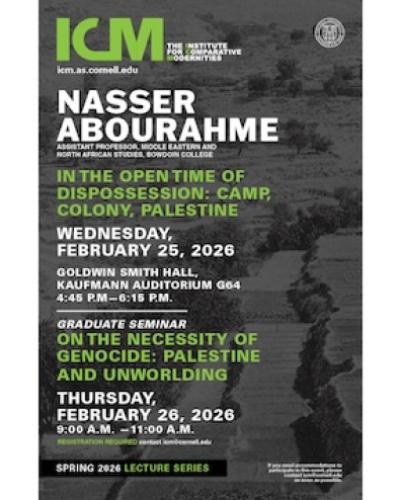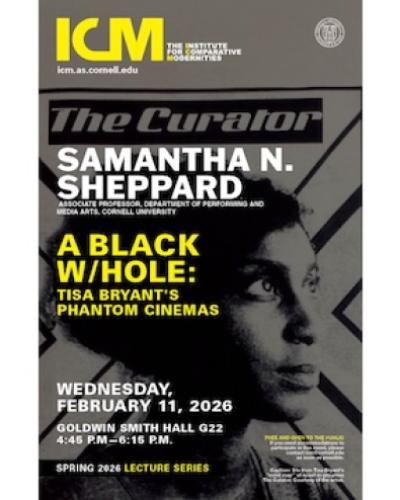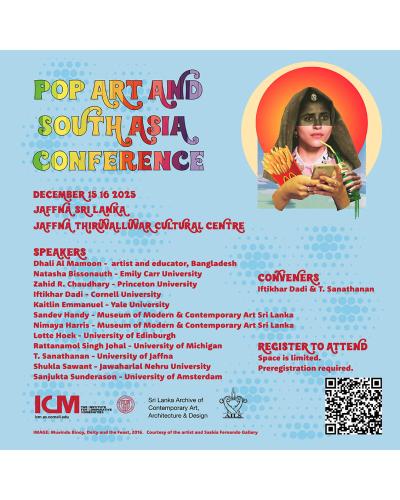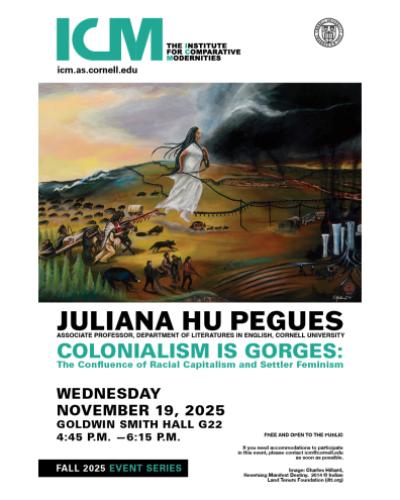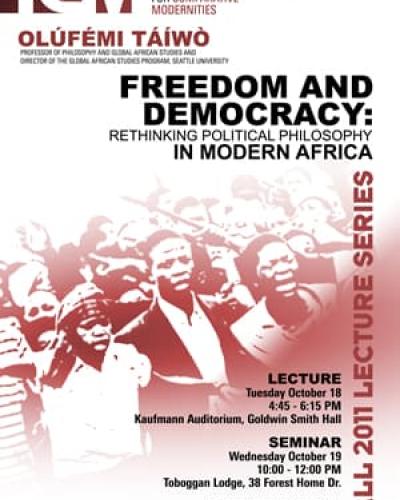Kaufmann Auditorium, Goldwin Smith Hall (October 18th)
Toboggon Lodge (October 19th)
Olúfémi Táíwò (Professor of Philosophy and Global African Studies and Director of the Global African Studies Program, Seattle University)
What would happen if, instead of taking an instrumentalist view of the ideas of modern African political thinkers, we consider those ideas as indeed they are, attempts by them to proffer answers to the central questions of political philosophy as those are apprehended in the African context? If we did, we would end up with a robust, sophisticated discourse properly denominated ‘Modern African Political Philosophy’ in which we recognize, possibly celebrate and, ultimately, assess the quality of answers that African thinkers have provided. The importance of recognizing a body of work under this genre cannot be overemphasized given the many debates, controversies, and misrepresentations abroad in accounts of the relationship between Africa and modernity. For us to come to this recognition, we need to jettison the dominant idea that limits to two the possible ways in which African thinkers have related, and can or should relate, to modernity: as victims or resisters. There is a third alternative that continues to be ignored or, when acknowledged, denigrated in the literature: those who embraced modernity and sought to remake African societies in its image. Táíwò argues that one can give an account in political philosophy that shows that the received wisdom is profoundly mistaken. To do so requires that we rethink political philosophy in the modern African context. When we do we shall be surprised by the treasures of political philosophical thinking waiting to be exploited. Táíwò’s lecture is a contribution in this direction. His specific focus will be on the idea of freedom and its role in modern African political philosophy.
SEMINAR
WEDNESDAY OCTOBER 19, 2011
10:00 am – 12:00 pm
Toboggan Lodge
38 Forest Home Dr.
• Suggested reading 1
• Suggested reading 2
Olúfémi Táíwò was born and raised in Ibadan, Nigeria. He earned undergraduate and graduate degrees from the University of Ife (now Obafemi Awolowo University), Ile-Ife, Nigeria, and graduate degrees from the University of Toronto, Toronto, Canada. He taught at the Obafemi Awolowo University until 1990. He served as a Staff Development Fellow, under the Canada-Nigeria Linkage Programme in Women’s Studies, at the Institute for the Study of Women, Mount Saint Vincent University, and the Centre for International Studies, Dalhousie University, both in Halifax, Nova Scotia, Canada, from 1988 to 1989.
Since moving to the United States, he has taught at Loyola University, Chicago. He was a Rockefeller Postdoctoral Fellow at the Africana Studies and Research Center, Cornell University in 1990/1991. In 2000/2001 academic year, he was a Ford Foundation Visiting Postdoctoral Research and Teaching Fellow at the Carter G. Woodson Institute for Afro-American and African Studies, University of Virginia, Charlottesville, Virginia, U.S.A. He has been a Visiting Distinguished Minority Scholar at the University of Wisconsin at Eau Claire, Eau Claire, Wisconsin, U.S.A. He has also served as a Visiting Professor at the Institut für Afrikastudien, Universität Bayreuth, Bayreuth, Germany; Ewha Womans University, Seoul, South Korea; and the University of the West Indies, Kingston, Jamaica.
His original research was devoted to developing a different account of the relationship between Marxism and law. He has continued to do work devoted to the challenges of post-legal society and the utopian possibilities such a society contains. In recent years, he has been concerned to reinscribe the contributions of Africans in the philosophical discourse of modernity, especially in its political aspects. The book that he is currently working on looks at modern African political philosophy from the mid-nineteenth century to the mid-twentieth century. A third element of his ongoing work is devoted to topics in African philosophy beyond those identified in social and political philosophy. He has ongoing research in the philosophy of religion, ethics, and the question of whether or not we can do sociology in an African idiom, specifically Yorùbá language. His ultimate aim is to write a major book on Yorùbá philosophy.
He is the author of Legal Naturalism: A Marxist Theory of Law(Ithaca: Cornell University Press, 1996) [currently being translated into Chinese], How Colonialism Preempted Modernity in Africa(Bloomington: Indiana University Press, 2010) and Africa Must Be Modern: a Manifesto (Ibadan: Bookcraft, 2011) [in press].

